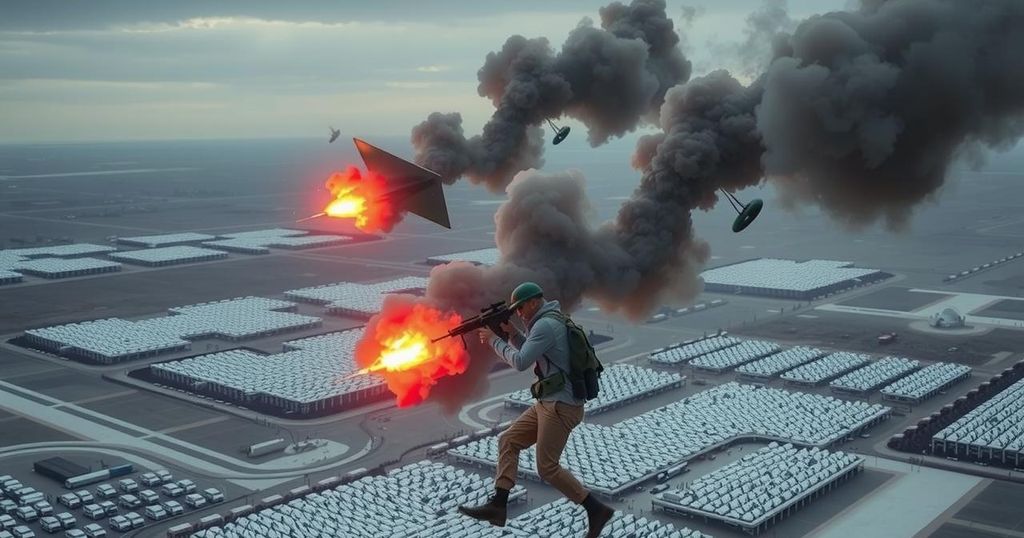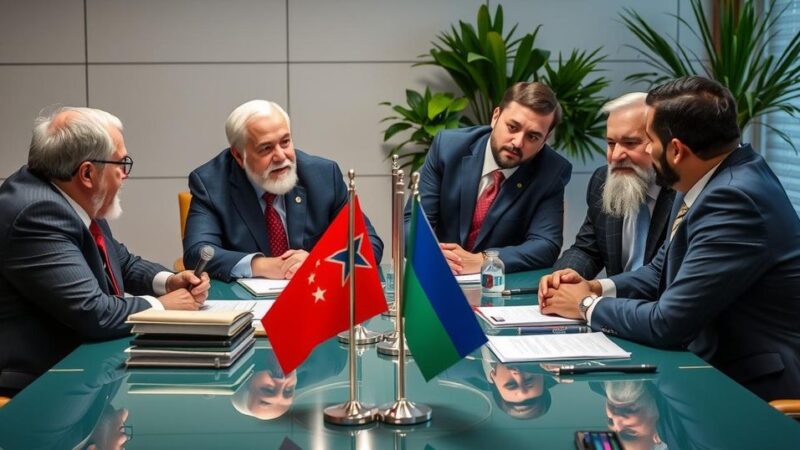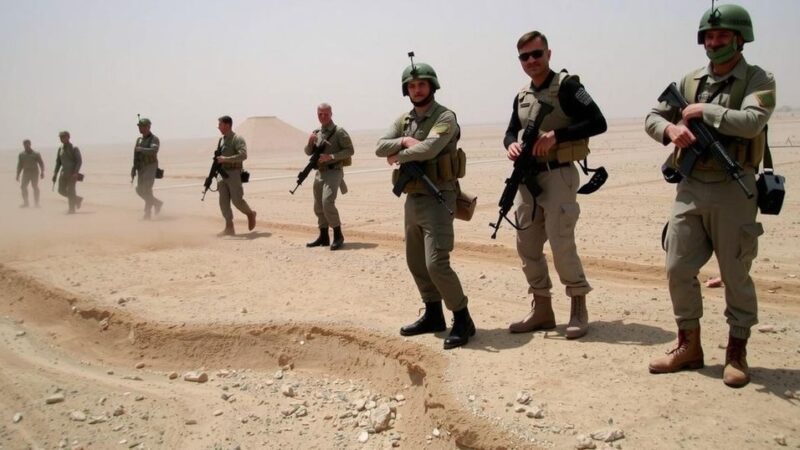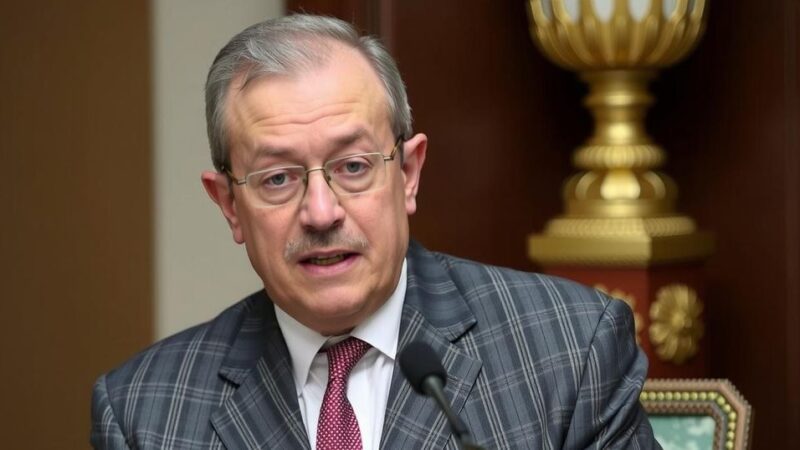Following the ousting of Bashar al-Assad, key diplomats convened in Jordan to discuss Syria’s peaceful transition, calling for UN support. Reports indicate Russia is pulling back its military but retaining its bases in Syria. Meanwhile, the Islamic State’s violent resurgence poses a significant threat amid the ongoing diplomatic realignments.
In the wake of President Bashar al-Assad’s removal, significant diplomatic discussions are taking place in Aqaba, Jordan, where top officials from the Arab world, Turkey, the EU, and the United States convened. The meeting underscored a consensus among the eight participating Arab nations to advocate for a peaceful transition in Syria, emphasizing support from the United Nations and the Arab League, as they navigated the aftermath of Assad’s ousting. Concurrently, reports from Syrian officials indicate that while Russia is withdrawing some military assets from northern Syria and the Alawite Mountains, it is maintaining its crucial bases in Hmeimim and Tartous, suggesting a strategic reevaluation rather than a complete military exit.
As the situation unfolds, a UN envoy has called for efforts to ensure the continuity of vital state institutions in Syria to prevent complete collapse, while a Russian cargo plane was observed departing from Syria for Libya, indicative of a shifting military posture. Meanwhile, the Islamic State has continued its violent activities, as reported by a war monitoring group that detailed several attacks resulting in civilian casualties. Diplomatic maneuvers continue, with Turkey planning to reopen its embassy in Damascus amid these significant shifts in power dynamics.
The geopolitical landscape in Syria has shifted dramatically following the recent overthrow of President Bashar al-Assad, who had governed with the support of Moscow. The fall of Assad has triggered a flurry of diplomatic engagements, particularly amongst Arab nations and Western powers, aimed at fostering a stable transition in Syria. Additionally, the involvement of various factions, including Islamist groups, adds layers of complexity to the political future of the nation. Russia’s military presence and its strategic bases in Syria remain central to regional stability and influence, particularly with the resurgence of extremist groups such as the Islamic State, which has capitalized on the ensuing chaos.
The unraveling events in Syria following the fall of President Assad highlight the urgency of establishing a stable political framework to replace his regime. The discussions among key international stakeholders in Aqaba aim to foster inclusivity and a peaceful transition, backed by international bodies. While Russia continues its military engagement, the threat from extremist groups persists, raising concerns about ongoing violence and civilian safety, necessitating a coordinated international response to ensure the well-being of the Syrian population and the integrity of the state’s institutions.
Original Source: www.france24.com





